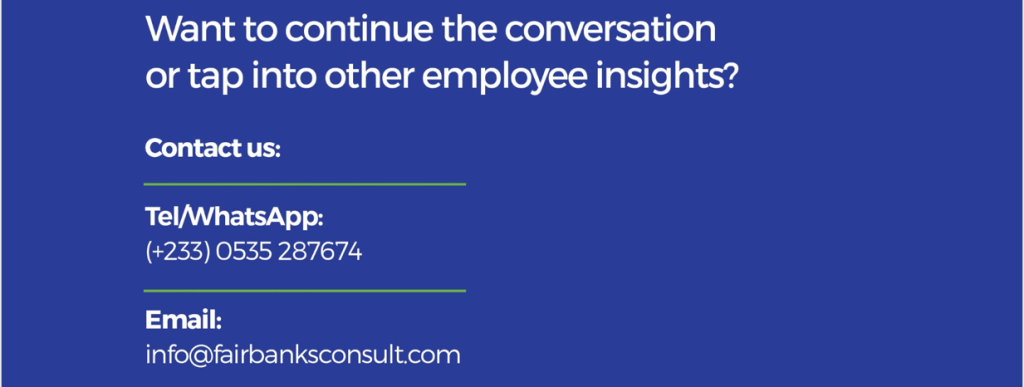“Dear Boss: I have completed another degree. Can I please get a raise?”
When employees say this, they could be saying…
“Work is about being compensated based on my educational background.”
What you should know…
In many African cultures, education is deeply valued, and seen as a symbol of success and status. Pursuing advanced degrees is often used to gain respect and admiration from family, community and society at large. A report by the African Development Bank found that, in 2019, 57% of African students pursuing higher education were enrolled in Master’s or PhD programs. As such, it is not surprising to meet someone who has three or four degrees (e.g., Bachelors, two Masters degrees, a Doctorate), yet is still in a fairly entry- or mid-level role.
The challenge for leaders arises, however, when employees believe (and expect) that with every new degree they acquire, it should automatically translate into more money – even if their role does not change. This can result in conflict between employer and employee, as the employee feels he or she is being treated unfairly and not receiving proper recognition from their employer. In many cases, this results in the employee leaving the organization to pursue another opportunity (sometimes for a marginal increase) or staying but reducing productivity as a form of silent retaliation.

What the statistics say…*
46% of Ghanaians agree that work is about being compensated based on their educational background (i.e., the higher the degree they possess, the more they should be paid.
Non-managers are more concerned about compensation being linked to their degrees than managers.


PhD holders felt strongest that compensation should align with their degree, while Higher National Diploma (HND) holders voiced the strongest level of disagreement.

Leadership in action…
As a leader, you can incorporate these findings into workplace policies and programs as follows:
- Ensure the compensation policy clearly outlines the basis for any increase in pay grade. Most companies, particularly in the private sector, link pay increases to a change in the individual’s role or job functions, and not additional degrees or certifications. However, it is important to periodically review the policy with employees to help manage expectations.
- Leverage your team members’ increase in knowledge. This can be done through opportunities for knowledge sharing (e.g., allowing them to lead internal workshops where they can demonstrate practical application of their knowledge) or stretch opportunities that allow them to take on projects that can leverage their new knowledge. These actions, if done well, can then be rewarded as part of the broader performance management system.
- Celebrate team members’ educational achievements. While an educational achievement may not warrant a pay increase, you can still tailor your rewards and recognition program to encourage continuous learning and get your HR team to send out a congratulatory email to staff acknowledging their achievement. While this may not suit every organization, some firms also opt to celebrate employees’ educational achievements on their social media channels
*The study was conducted in 2023 with a sample size of 438 participants (240 men, 198 women) from private sector firms in Ghana.



